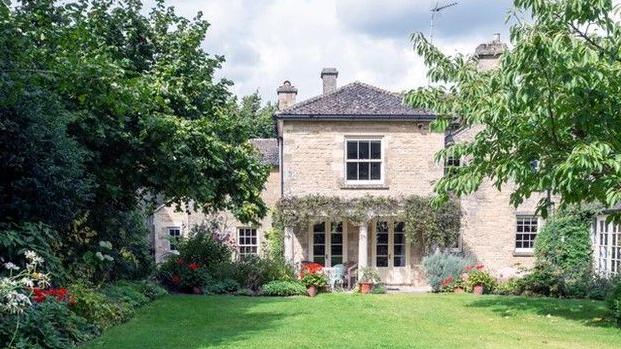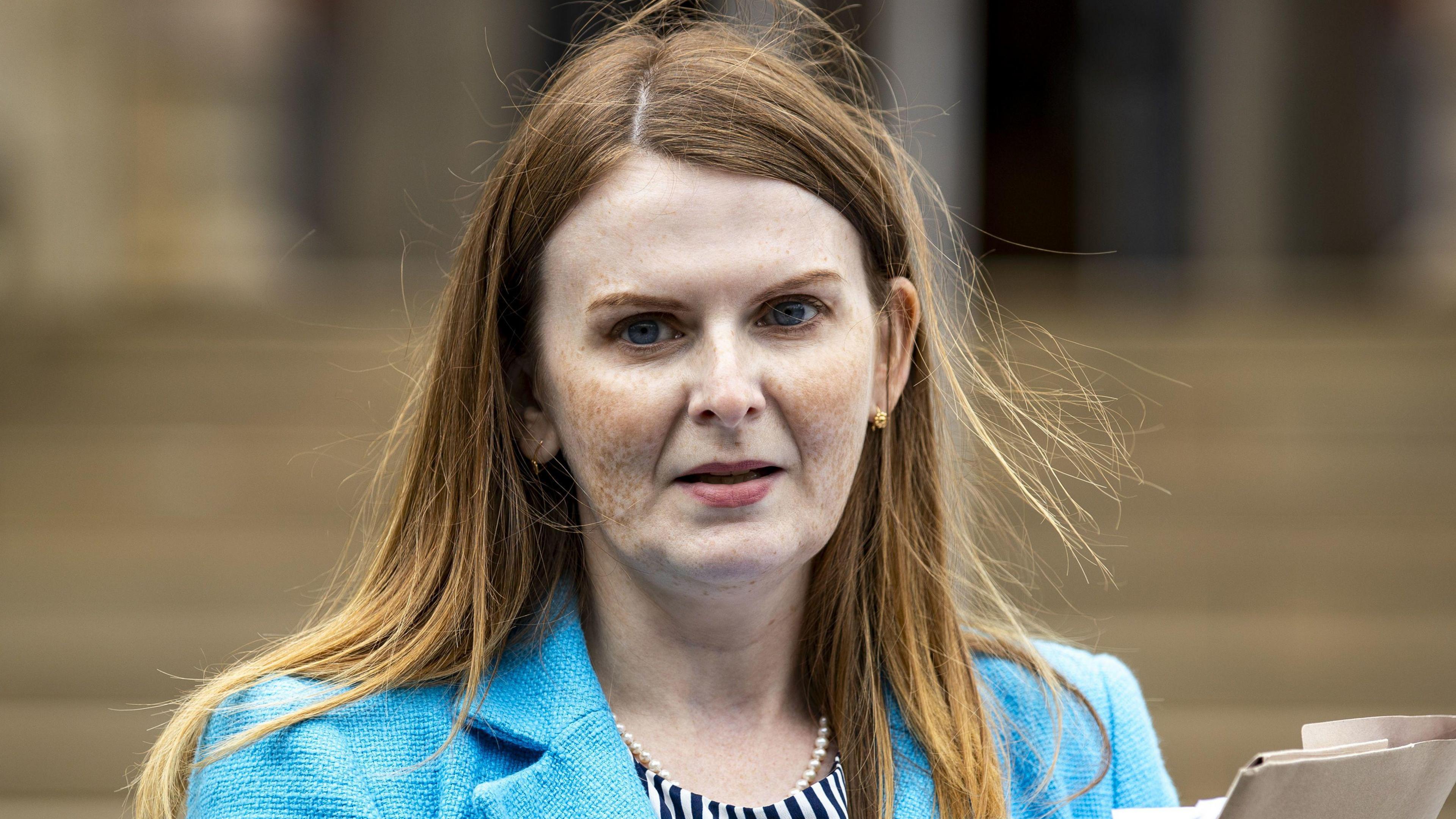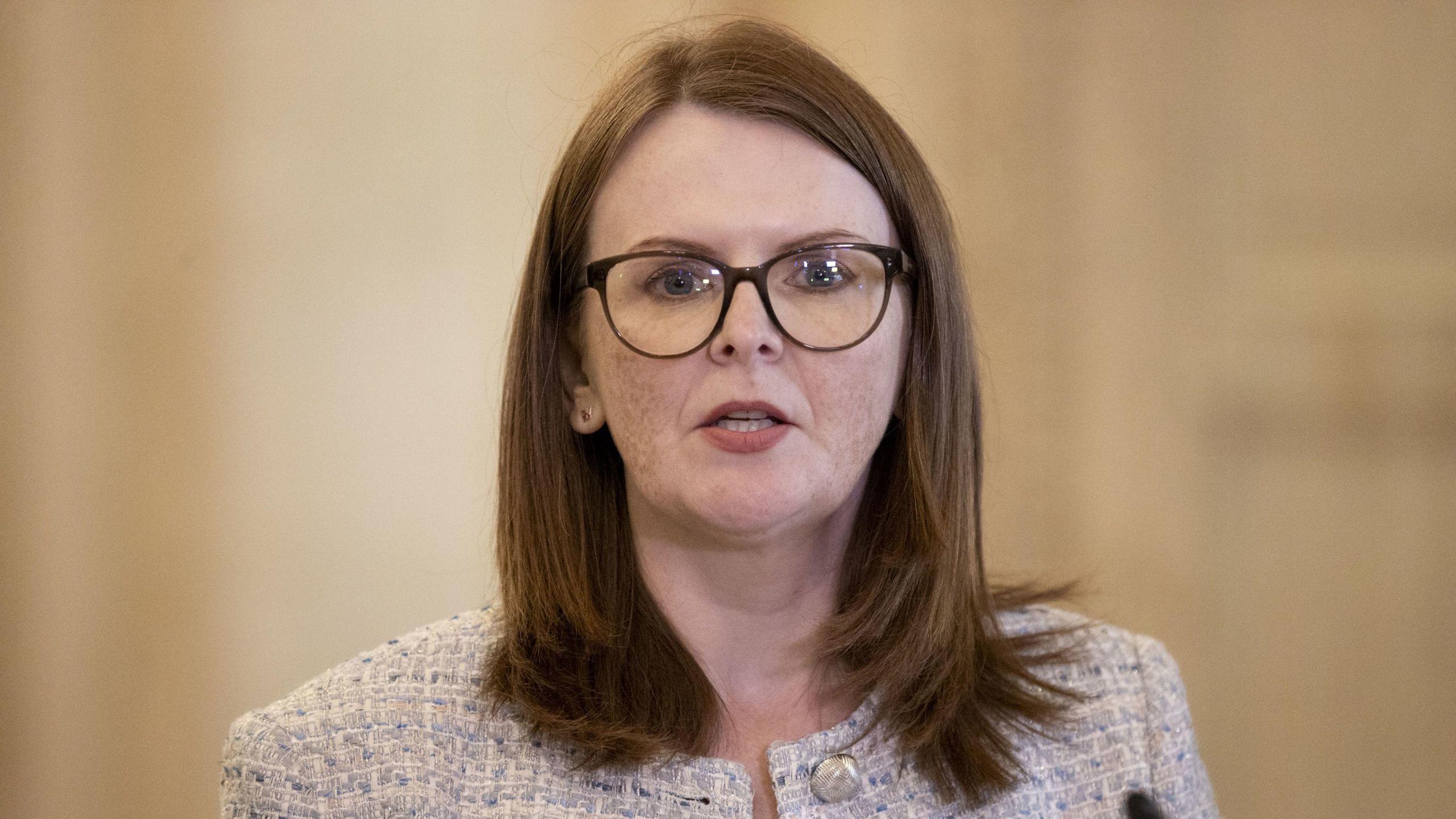Stormont revenue target to be met by modest rates increase

This year the regional rate went up by 4% and by 6% in 2023.
- Published
The Northern Ireland Executive will be able to meet a revenue raising target set by the UK government with a modest increase in rates.
Rates are a property tax which are paid to Stormont and local councils.
A budget sustainability plan published on Thursday suggests the ‘regional rate’ paid to Stormont will need to increase by between 2.5% and 4% next year to meet the target.
This year the regional rate went up by 4% and by 6% in 2023.
The Executive committed to raising £113m of additional revenue as a condition of a £3bn financial package which accompanied the return of devolution.
About £80m of that has already been accounted for this year, primarily through rates.
The Executive also agreed to publish a sustainability plan which will set out how it plans to run balanced budgets in future.
The plan states: "Current forecasts would suggest that the Executive can meet their £113m commitment without resorting to significant and disproportionate increases to Regional Rate."
The numbers in the report do not definitively set next year’s rates.
It states: "Whilst no decisions on 2025-26 levels of income have yet been taken, in order for the Executive to take timely decisions to fulfil the £113m commitment departments will be engaging with Department of Finance on potential revenue raising decisions as part of the 2025-26 Budget process.
"This engagement, along with an assessment of the wider financial pressures will allow the Finance Minister to make an informed decision on the level of the Regional Rate."
The plan was a condition of the £3bn financial support package from the UK government which accompanied the return of devolution.
It is intended to explain how the Executive will run balanced budgets in future.
That includes examining options for efficiencies, revenue generation and borrowing powers.

Caoimhe Archibald is Stormont's finance minister
Last month, Finance Minister Caoimhe Archibald, also signalled she was set to propose additional measures which would mean higher rates bills for some households or businesses.
The minister said she wanted to "build a progressive rates system which grows our tax base and stimulates our economy".
Rates in affluent areas of north Down
Her department has published responses to a rates consultation which was started by the government while devolution was suspended.
The consultation included a proposal to increase rates for the most valuable houses.
Rates are based on property values and the rateable value of houses is currently capped.
No houses are assumed to be worth more than £400,000 at a 2005 valuation.
That means that large homes in more affluent areas of north Down, for example, currently pay the same rates as much more modest detached houses.
https://www.bbc.co.uk/news/uk-northern-ireland-67343293
- Published10 September 2024
